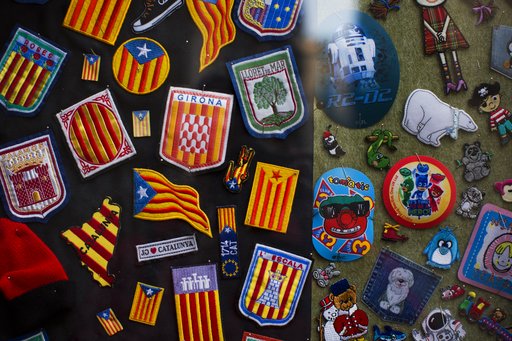Elections in Catalonia have failed to clarify the restive region’s immediate future, exposing a deep and broad split between those for and against independence from Spain.
CGTN’s Al Goodman reports from Barcelona.
In Arenys de Munt, secessionist fervour was reflected in Thursday’s results: three pro-independence parties got over 70 percent of the votes.
The village northeast of Barcelona became the first to hold a symbolic vote for the region of Catalonia to split from Spain in September 2009.
Josep Manel Ximenis is the former mayor and a devoted pro-independence activist.
“These are the most important days of my life – other than witnessing the birth of my children – September 13 and October 1 and nobody will take this away from me,” he said, getting visibly emotional.
Spanish Prime Minister Mariano Rajoy called Thursday’s snap election after Catalan separatists declared independence in October following a referendum deemed illegal by Spanish authorities.
Rajoy also fired the Catalan government that Carles Puigdemont ran and dissolved its parliament.
Though the pro-Spain Ciutadans (Citizens) collected most votes in the ballot, it was a bittersweet victory for the business-friendly party as separatist parties won most seats in the region’s parliament.
Puigdemont’s pro-independence Junts per Catalunya snared 34 seats in the 135-seat regional assembly, making it the most popular separatist party in the region and also in Arenys de Munt.
Thirty-five kilometers (22 miles) away is the industrial coastal city of Badalona.
Here the pro-Spain Ciutadans party – led by Ines Arrimadas in Catalonia – won 31 percent of the vote, almost doubling its support from the previous Catalan election two years ago.
The separatists’ slim parliamentary majority will allow them together to negotiate the formation of a government.
Past squabbles between them suggest it won’t be easy.
Story by The Associated Press
Sebastian Faber, a professor of Hispanic Studies at Oberlin College in the U.S. state of Ohio, joined CGTN to talk more about Catalonia’s regional election.
 CGTN America
CGTN America Clothing parches embroidered with Catalan pro-independence flags, left, are seen on a window-shop in Girona, Spain, Friday, Dec. 2, 2017. Elections in Catalonia have failed to clarify the restive region’s immediate future, exposing a deep and broad split between those for and against independence from Spain. (AP Photo/Bernat Armangue)
Clothing parches embroidered with Catalan pro-independence flags, left, are seen on a window-shop in Girona, Spain, Friday, Dec. 2, 2017. Elections in Catalonia have failed to clarify the restive region’s immediate future, exposing a deep and broad split between those for and against independence from Spain. (AP Photo/Bernat Armangue)
